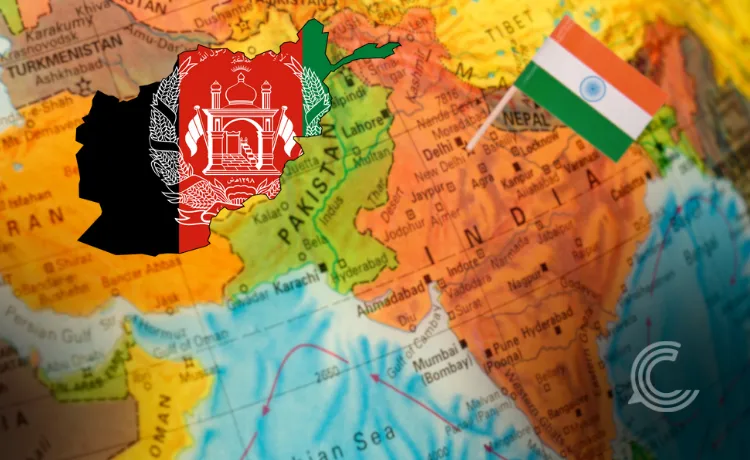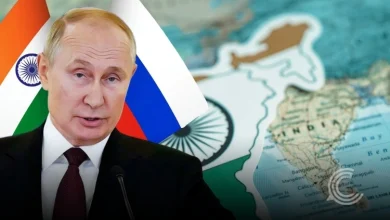Pakistan Airstrike in Kabul Fuels Tensions as Afghan FM Visits India

Key Highlights–
- Explosions and gunfire were heard in Kabul as Pakistan allegedly conducted an airstrike targeting a TTP leader.
- The attack coincides with the Afghan foreign minister’s visit to India, heightening diplomatic tensions.
- Taliban reports no injuries; US envoy calls strike a “huge escalation.”
Kabul was shaken by two powerful explosions and subsequent automatic gunfire late Thursday, with multiple witnesses also reporting the sound of a fighter jet overhead, as reported by several news agencies. It has been alleged that the incident may have been a Pakistan airstrike in Kabul aimed at Tehrik-i-Taliban Pakistan (TTP) chief Noor Wali Mehsud, who was reportedly staying in a safehouse in eastern Kabul.
Explosions Rock Kabul, Jet Sounds Reported
The blasts occurred around Abdul Haq Square before 10 p.m. local time. Security forces promptly sealed off the area and launched an investigation. Furthermore, the timing is striking, as it comes just as Afghanistan’s foreign minister, Amir Khan Muttaqi, is on a diplomatic visit to India, set to hold talks with External Affairs Minister S. Jaishankar and NSA Ajit Doval.
Taliban Denies Casualties, Investigation Underway
The Taliban government’s spokesman, Zabihullah Mujahid, responded via social media saying, “An explosion was heard in Kabul city… no injuries or damage reported so far, and the situation is under investigation.” The defiant tone suggests Kabul’s attempt to manage the political fallout.
Despite the denials, many remain skeptical. The Former U.S. envoy Zalmay Khalilzad has sharply criticized the strike, calling it “a huge escalation and dangerous”. He has also warned that there might be further instability if Islamabad continues such actions. Khalilzad also urged negotiations to be held between Kabul and Islamabad, instead of a military escalation.
Regional Context and Strategic Implications
The cross-border strikes initiated by Pakistan into Afghanistan are not new. Analysts have pointed towards Islamabad’s frustration with militant activity across the border and its efforts to project strength. There have been previous strikes targeting TTP hideouts in provinces such as Paktika and Khost, which sparked similar diplomatic backlash.
Additionally, the Pakistan airstrike in Kabul reinforces growing volatility along the Pakistan-Afghanistan border. Islamabad has long accused the Afghan regime of permitting militant sanctuaries to be used against Pakistan. Meanwhile, Kabul insists on sovereignty and peaceful resolutions.
Diplomatic Fallout and India’s Role
The strike that took place, especially during Muttaqi’s visit to India, has added a diplomatic dimension to the incident. As a result, India has expressed grave concern over regional stability, and this airstrike could complicate discussions on security cooperation, counterterrorism, and investments between Kabul and New Delhi.
Also Read | India Slams U.S. Push to Regain Bagram Air Base in Afghanistan
Pakistan’s decision may also be intended to influence the narrative in Indian diplomatic circles. It could also be intended to send a signal about its posture toward cross-border militancy, especially given the spotlight on Afghanistan-India ties during this visit.
What Comes Next?
In what seems like a linked move, Pakistan’s army said it had taken out around 30 militants connected to an ambush that killed 11 soldiers near the Afghan border earlier this week. As reported by Reuters, the strike happened in Orakzai and was described as payback for the deadly attack. Many believe the Pakistan airstrike in Kabul could be part of a larger push by Islamabad to hit back at militant groups hiding across the border and show it’s getting tougher on cross-border terrorism.
However, it’s too early to confirm the identity of the target or the extent of damage. Afghan officials may delay full disclosure to allow investigations to proceed. The analysts will be watching closely for any confirmation that Noor Wali Mehsud was hit. If so, it could provoke retaliation or open a new front in regional tensions.
Meanwhile, the international community will likely push for restraint, urging dialogue over escalation. The Pakistan airstrike in Kabul may end up being a provocative test of how far regional actors are willing to push in a fragile post-U.S. withdrawal Afghanistan.



